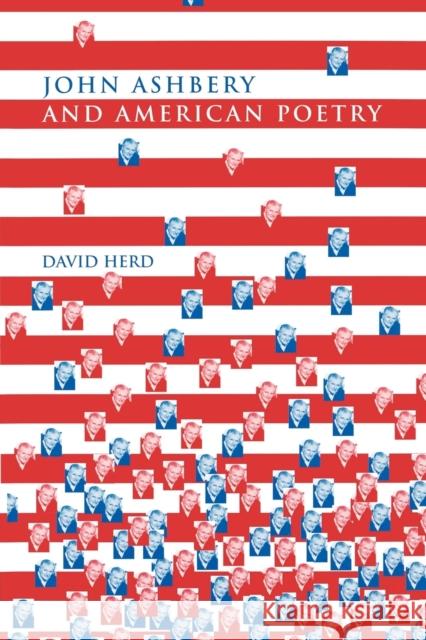John Ashbery and American Poetry » książka
John Ashbery and American Poetry
ISBN-13: 9780719080593 / Angielski / Miękka / 2009 / 245 str.
John Ashbery is America's greatest living poet. He is also greatly misunderstood. For many he is the inheritor of and American tradition that includes Walt Whitman and Wallace Stevens. Yet for some he threatens the very future of poetry. He is a source of continuing inspiration for younger writers of all kinds. Yet he can still prompt startling hostility from reviewers. Lauded by admirers, baffling to detractors, Ashbery's achievement remains perplexingly great. "John Ashbery and American Poetry" takes this paradoxical state of affairs as its starting point. David Herd sets out to provide readers with a new critical language through which they can appreciate the beauty and complexity of Ashbery's writing. Presenting the poet in all his forms -avant-garde, nostalgic, sublime and camp - the book argues that the perpetual inventiveness of Ashbery's work has always been underpinned by the poets desire to write the poem fit to cope with its occasion. Tracing Ashbery's development in the light of this idea, and from its origins in the dazzling artistic environment of 1950's New York, the book evaluates his poetry against the aesthetic, literary and historical backgrounds that have informed it. Ashbery is identified as both an American pragmatist writing in the sprit of William James, and as committed literary internationalist learning from Boris Pasternak and the Russian avant-garde. His poetry is shown to be alive to such culturally defining issues as the growth of mass culture, the absence of a divine presence, the war in Vietnam, the emergence of AIDS, the erosion of tradition, and the decline of the avant-garde. His responses to such pressures are contrasted with the work of, among others, Robert Lowell, John Berryman Kenneth Koch, and Frank O'Hara. The story of a brilliant career, and a history of the period in which that career has taken shape, "John Ashbery and American Poetry" provides a compelling account of Ashbery's importance to Twentieth Century Literature.











